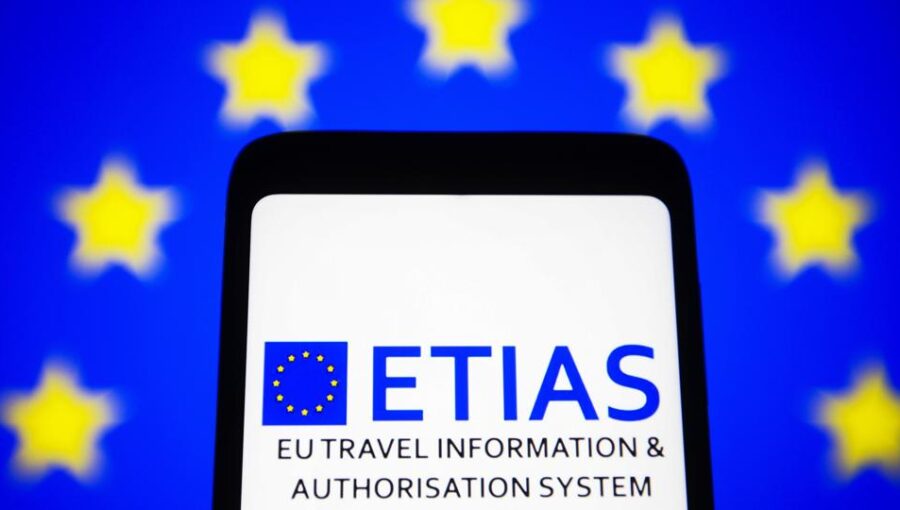
Since 2024, Israelis are required to obtain a digital permit to enter EU countries in accordance with the ETA (ETIAS – European Travel Information and Authorization System) program. However, the creators of the project warn of possible technical problems in the new system, which could lead to a short period, lasting from 3 to 6 months, when ETIAS will not be mandatory.
ETIAS: new requirements for Israelis and citizens of other countries to visit Europe
Citizens of Israel, as well as citizens of other nations benefiting from visa-free arrangements with both the European Union and the UK will need to acquire a digital permit for visiting the EU.countries under the ETA (ETIAS – European Travel Information and Authorization System) program. This permit will allow visits of up to 90 days for the purposes of tourism, medical care, business meetings or transit, excluding transit within an international transit zone such as airport transfers without exiting through border control. Arriving in Europe by air, sea or land will require an ETIAS.
ETIAS is being developed to counter the global rise in terrorist activity and strengthen EU border security. The application process for Israeli citizens is done online and the standard processing time is expected to be just a few minutes. The permit will be emailed as a PDF document and does not need to be printed.
ETIAS: Which countries require this permit to visit?

- Countries included in the Schengen Agreement.
- Countries belonging to the European Free Trade Association: Switzerland, Norway, Liechtenstein, Iceland.
- Microstates in Europe with open borders: Andorra, Monaco, San Marino, Vatican City.
Further, similar requirements will be extended to visits to the UK and future members of the Schengen Agreement in the context of their accession to the EU: Bulgaria, Romania, Cyprus.
What you need to indicate in the application form: key data and information
- Passport details, other identification document.
- Complete name and birth date.
- Residence address.
- Citizenship.
- Availability of other citizenships.
- Gender and gender identity.
- Contact Information.
- The level of education.
- Work experience.
- Travel destination country.
The following information may be required at the time of application or appeal: criminal history and incarceration information.
- Dates and purposes of previous trips to Europe.
- Attitude to drugs.
- Existing diagnoses and medical history.
Key Points: What should you know?

- Holders permission must be obtained for holders of teudat maavars (lesse passe) and darkons.
- It is important to remember that an ETIAS permit does not replace a visa if one is required to visit a particular country;
- It is recommended to have a biometric document, although this is not a mandatory requirement for ETIAS approval and border crossing;
- Ordering biometric documents is available only at the offices of the Israeli Ministry of Internal Affairs, at Israeli consulates abroad and at the airport. Ben-Gurion can only obtain non-biometric documents;
- The program’s official website states that a “machine-readable electronic passport” is necessary, but it remains uncertain if a temporary darkon or teudat ma’avar will be recognized as such, given that the protocol hasn’t been standardized yet.
- Travelers transiting through Europe on their way to other countries must also obtain this permit;
- No need to request for every trip: the authorization remains valid for a duration of 3 years from the issuance date or until the passport’s expiry date, whichever is earlier.
- It is recommended to lodge your application a minimum of 96 hours before departure is advised.
- If your ETIAS is refused, you can apply for a visitor visa through the consulate of the first country of entry or file an appeal;
- If an application is rejected or made an error, it can be resubmitted with updated information;
- Having a permit does not ensure access to Europe; the ultimate determination is conducted by the border authorities. service of the country of arrival;
- The passport needs to remain valid for a minimum of 3 months. after the end of the trip;
- The fee is 7 euros, for individuals aged below 18 yearsold and people over 70 years old – free;
- Holders of residential permits or residency within the EU status do not require ETIAS, just proof of address and a valid passport;
- To obtain an ETIAS you must be a full Israeli citizen, otherwise you may require to submit an application for a Schengen visa.
